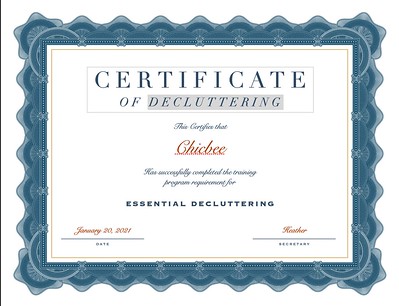I read an article today from the El Camino College Union – the student newspaper at El Camino Community College in Torrance, CA. ECC is one of California’s community colleges, and serves nearly 30,000 students per year. The writer was extolling the virtues of ECC’s certificate programs, especially for students who already have a bachelor’s degree. But some community college certificate programs are a ticking time bomb.
Starting July 1, the Department of Education will require community colleges to collect employment and wage data on their certificate earners. The goal is to determine whether or not certificate programs produce higher average income than a high school diploma does. The period of interest is two years after the community college issues the certificate. For programs that fail this test, the consequences are significant. The offending program will no longer be eligible for federal financial aid.
At a community college, not being able to offer federal financial aid to students is likely a death sentence for a certificate program, unless of course, the college wants to pony up its own funds to support students on a quest to master low-wage employment. This is the Gainful Employment test, and it’s coming to a community college near you.
The Gainful Employment test poses three problems for community colleges. The first – obviously – is a financial problem. Community colleges that offer certificate programs are putting potentially a lot of money at risk. The more certificate programs a community college offers, the more likely it is that at least some of them are going to get the stink-eye from the Department of Education starting in 2026.
Eliminating certificate programs will reduce risk
The second problem is public policy. Community colleges already know which certificate programs won’t pass muster. Despite knowing that people waste both time and money on these low-impact certificates, community colleges will continue to offer them right up until the moment the Department of Ed brings the hammer down on them.
Publicly funded community colleges knowingly peddle worthless certificates. Those students might go into debt to earn one of them. Although the cost of these programs is probably low, debt is debt. When you can’t make enough money to repay even a nominal debt, you’ve been fleeced by a public entity. Instead of being lifted out of poverty, you are mired in debt that you cannot discharge. Is that really good public policy?
The third problem is one of optics. What does it say when a community college produces and promotes worthless educational programs? Why do we approve millage after millage, only to have our college sanctioned by the Department of Education? Worse, the Department of Education will publicly announce which programs pass muster and which ones don’t. There is nowhere to hide on this one.
So, say – for example – a certain community college offers twice as many certificates as degrees. And say the wage and employment data show that a significant number of the school’s certificates don’t produce the “gainful employment” the Department of Labor wants. And if the school had developed a habit of issuing certificates in lieu of degrees for students who left school without finishing a degree program, that could also seriously bias the data that measures how well off those certificate-earners became in the two years following the date on which the school issued the certificate.
Just like that, certificates have gone from brilliant strategy to risky gamble for community colleges.
Photo Credit: Chic Bee , via Flickr



















